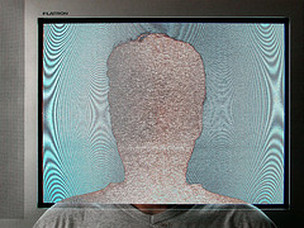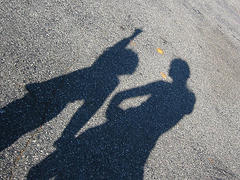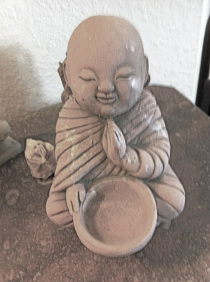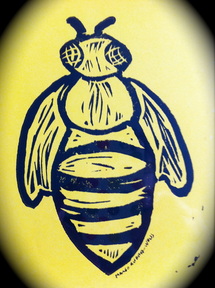 The Human Condition-Homage to Rene Magritte / [piXo] Not a week goes by that I don’t wonder if this will be the week I have nothing to write. Sometimes there’s not much to talk about and sometimes a lot happens. My original reason for writing was to encourage myself to search for the holy in the daily. But it wasn’t long before I focused on my own transformative moments. I sense there is risk in all the introspection; not risk like running naked through a flower-show but more of a “ho-hum” risk. What could be worth reading about this ordinary life?
Luckily, I often find someone else’s insights to justify doing a weekly self-disclosure. In his forward to David Shield’s Enough About YOU, Notes Toward the New Autobiography, documentary filmmaker, Ross McElwee writes “ …each of us plumbed deeply enough and from enough angles contains the entire human condition.” I like that justification for these weekly explorations – “the entire human condition.”
This week was filled with exciting options that included a day at the Zen Center learning about satipatthana, the framework for establishing mindfulness, with Gil Fronsdal; attending Acid Test, a play about Ram Dass, followed by dinner with Corky; a meeting with my meditation practice teacher who told me “no” and I didn’t cry; and being with my darling therapist, practicing asking for an apology. But I choose to spend the remaining paragraphs playing with a moment of truth from early in the week when Corky said something to me that hit home. I trust that this will speak to the entire human condition.
Corky and I needed to talk about what had happened a few nights earlier when we went to hear author Mary Roach at the Jewish Community Center. Before the lights went down my feelings were hurt, and rather than express anger at Corky, I chose to weep silently in the dimness of Kanbar Hall as Ms. Roach burbled on about flatulence and gastrointestinal juices. When Corky asked me on the ride home if something was wrong, I acknowledged feeling disrespected by what felt like her disinterest in what I was saying about myself. We set a time to talk it over. Good idea. Resentment rarely serves relationship.
A few days later we met in the patio of ‘Arlequin, sat in the sun and looked back at the incident at the JCC. In cases of hurt feelings I like to say to myself: “Hurt people hurt people.” So what had hurt Corky?
I will say here only what I understood from what she said. Her complaint was that I seem so self-absorbed that she wonders if there is any room in me for anyone else. She made a valid point. Hers is the same plaint one might make of a fishing enthusiast who chooses to spend most of his waking hours on the water. Such preoccupation tends to leave little room for anyone but a fellow enthusiast. And it is clearly irrational to expect anyone else to be as caught up in my insights and exhalations as I am. Or as I hope, on occasion, you are, keeping in mind “The Entire Human Condition.”
Anyway, I took to heart her lament. It is true. I do love to examine being me. And yet, I remember reading Pema Chodron about “self-cherishing” which is not so much about loving the self as it is about preoccupation with self, with fixing. I am grateful to Corky for saying my self-absorption made her feel left her out, much as I had, in the past, found her affection for old movies and audiobooks sometimes tiresome and excluding.
And yet what seemed called for on this occasion was less looking back and more thinking forward as to how to create a “we” space and time to be about and for each other. So I proposed a plan whereby no day goes by without kind words for the other, and emails don’t count. Kind words and time together is key, time during which we pay attention to each other. Of course, I have no control over how much attention I get. But that is not a problem. I am notoriously good at being attentive to myself.
Thus with the help of everyone who wants to be in relationship with me, especially Corky, it will be my practice to be at home in self-awareness while holding the door open to others. Welcome to my human condition.
 Shadows / dvs At the start of the week as the sun rose, I joined a mother and her two small children dancing with their shadows in the Safeway parking lot near Fillmore Center. We swayed and gestured at our dark doubles. In my jacket with wide sleeves, arms outstretched, my shadow looked like a bat. The dancing daughter said she was a fruit bat, the son, a blue water bat and the mom said she was an elephant bat. When we ended our dance, we bowed to our shadows and to each other. Then I drove home, imagining them dancing across the plaza and up Fillmore Street.
As dance partners, shadows can be great fun. Yet my relationship with my shadow has often been dark. May I remember this recent brief and lovely relationship with my shadow as I continue to face C.G. Jung’s archetypal “Shadow,” the part of me that represents all my disowned, despised, and repressed traits. Buried in the subconscious mind safe from judgments, my shadow is grounded in fear and plays out in drama and competitiveness. Sometimes it casts its darkness over other people, projecting traits that are more about me than about them. Each time I approach my shadow with curiosity and acceptance, my reactions soften, allowing me to be less heavy handed.
And now that Corky and I are again in relationship, protecting us is high on my list of priorities. And I agree with her that it is in our best interests for me not to get so angry when my feelings get hurt that I lob an empty plastic water bottle at her the way I did in the parking lot when we went to Ashland several years ago. We’re going there in June, so it makes sense that she would remind me of that episode. Part of protecting us will be recognizing when I am dealing with my shadow projection rather than with the real Corky, who, like me, just wants to be happy.
This time in our relationship I want to see and appreciate her without reading in or acting out when I am scared or intensely emotional or getting my competitive feelings stirred up. I’m guessing my shadow is in play, and this is where I can look for clues into that unskillful behavior.
Jung says the higher purpose of the shadow is to help us transform into our fullest being. He calls it “our sparring partner,” the opponent who exposes our flaws and sharpens our skills.
I know it takes a lot of honesty to face traits in myself I hate and can’t help but notice in others. I have to acknowledge they exist in me. Actually, over the two years that Corky and I were apart, Buddhism, meditation and therapy have made me more familiar with parts of my psyche that were damaged or hadn’t matured. I have learned that shame shows me where to look. I am more familiar with the strategies that keep me from feeling pain from my disowned parts. I want to continue to accept my shadow and the fear and rejection it holds, so they won’t need to be acted out so dramatically.
Like with the shadow in the parking lot, light shining on one side reveals the dark side, allowing for the dance. As for Corky and me, I hope we both learn to express our true feelings, and we make it safe to see our shadows, to forgive ourselves and each other, and to learn to accept, again and again and again.
 Baby Buddha Statue / AlisonR. I went to the home of strangers to rock a five-week old very big baby boy. I signed on to a list of baby soothers, friends and church members who could assist with the family’s newborn son a few hours each day. Because of a broken arm, the baby’s mother can’t hold him; the baby is bigger than a one-armed mother can manage. Although daddy is on paternity leave and helps, he can’t hold the baby continuously. I don’t know why I volunteered.
I hadn’t seen myself as a baby holder, yet here I was. Sometimes experiences just come along at the right time. I had heard from my meditation teacher and others that I should hold my own experiences with gentleness. Yet somehow, this had remained a concept rather than a physical reality. This week something settled in me as I gathered up the sobbing baby.
Perhaps it was into the second day of rocking the sleeping baby in the glider that I ran out of nursery rhymes. Undaunted, I sang an aria from Tale of the Missing Sock, an original opera for soprano voice inspired by one bare foot. When the baby’s mother tiptoed into the room with a glass of water, she caught the closing notes of my lament for the missing sock, a tune crooned in the soprano voice I crafted while living in Japan, where a high voice connoted a sweet and gentle woman.
Apparently, during the quiet time my gentle rocking provided, mom had been catching up on her work. For the time I was able to give her, she was exceptionally grateful. And I was grateful too. Who would have guessed how much bliss I would find cradling, rocking, singing and holding stillness for this large, sleeping baby boy.
Sunday afternoon was my third go at holding the baby, so daddy could drive the real grandmother to a friend’s house across the city and mom could sleep an hour.
Hard to believe that only three days before, I beheld a sobbing, seemingly inconsolable baby I had never seen. Nobody told me that holding this baby, his face on my shoulder, his breath sweet, his dreams sounding from his throat against my cheek could sink so deeply into my being. Yet this was what happened. Hours passed as I sang, rocked, patted and ran my hand up and down his back, occasionally adjusting his head when it lolled too far on my shoulder.
Sadness came. I had given birth to three of my own screaming, hungry sons, none of whom I could recall having held with this much patience and gentleness. My babies had not had a mother able or with time to be gentle, to give herself totally to holding, soothing and singing arias about missing socks.
Yet being with this baby is more about gladness and gratitude than about sadness and regret. My sons grew up to nurture children or pets of their own. And here I am unexpectedly with a chance to nurture myself, to experience the gentleness called up in my heart by a child of strangers. I see how I can cuddle and rock my own inner life with the same care as I cradle this baby boy.
 Kitchen Story from Yelp / Genevieve Y My girlfriend Corky and I like to have breakfast together in lovely spaces on days we will not spend together because our commitments keep us apart. We go out early. That is our habit because we choose popular places that fill up quickly. This particular morning, however, the restaurant was almost empty. Seated with my back to the window, I could see most of the small space.
I call this “The Kitchen Story” because that’s where we were that morning. It started as a story about a simple kindness. It has become a struggle to tell without it becoming bigger than it was.
Here is the story. Not long after we were seated and studying the menu, a man came in. He was unkempt and carried a large green bundle that could have been a sleeping bag. It was obvious that the two young women on the wait staff did not want to seat him, and they did not know how to ask him to leave. They skittered around the counter uncertainly and finally seated him in a corner.
I could see their discomfort; I gestured to one young lady and when she came to the table, she acknowledged that the man’s demeanor made them uncomfortable. Neither of them knew what to do about him. She said that if he did not pay, the manager would be angry and they would have to explain. In short, they were uncertain and unprepared to deal with the “what if.”
Without thinking, I said to her that I would like her to serve the man, and I would pay for his breakfast if he did not. I had to reassure her multiple times that I truly meant to do this. They were relieved by the offer. The man was served his breakfast and he paid his bill. He also left a tip.
Why was telling this story a struggle? Did I have problems with appearing kind and generous? Both traits are admirable. Hoping she could help me tell the story, Corky shared it with her friends. Their reactions made it appear even bigger than it was. While it’s gratifying to be in the same sentence as Gandhi or the Dalai Lama, it only added to my discomfort.
In truth, at that moment I had no large vision, not even the first Unitarian Universalist principle: The inherent worth and dignity of every person. I did not think to tell the uncertain young wait staff to look past that man’s unkempt appearance and behold his inner goodness. Nor did it occur to me that I might postulate the Buddhist precept of not causing harm.
It was even later as I wondered about telling the story at all that I remembered sobbing through Olivier Messiaen’s opera, Saint François d'Assise. When the monks are busy with monastery chores, an angel asks admission. They wave off the angel without seeing him. When I considered this all too human mistake, I cried.
As I have grappled with telling this story, I see that the struggle has been in writing about myself when experiencing no self was such a large part of it. This state of being is certainly unfamiliar. And that is my kitchen story.
 Bee picture in my living room / Alison R. In these posts I try to mine my own experience for spiritual gold. Some weeks I think I have struck pay dirt whereas other weeks my search unearths fewer precious metals. In searching through self for spiritual material, I often clank up against the rock of ego and seeing in it the least glitter of the yellow stuff, I mistake its value, misled by ego’s need to feel special. (It helps to have an editor.)
When bees swarmed into my Saturday morning meditation, I noted persistent bee thoughts and later scouted the Internet to understand Bee as a symbol. As I collected information about Bee symbolism through recorded time, I also noted the swell of self-importance. Wow, bees chose me! How ego strives to be special! Then I was stung by the realization that ego is not Bee’s message.
Sure, I loved learning that the bee is symbolic of feminine energy, that its honeycomb, a hexagon, is the symbol of the heart and represents the sweetness of life found within one’s own heart, but even more important is the communal nature of bees – they serve the interconnected world. It was a reminder I needed.
On Easter Sunday I was scheduled to be part of the worship service, to speak to the congregation about renewing and increasing its financial support. I had been struggling to be wholehearted, wondering if I could urge others to contribute without being a hypocrite. I had made no secret of my personal disappointment with almost everything to almost everybody in the church. Could I honestly ask anybody else to support the church when I had been ambivalent about renewing let alone increasing my own contribution?
Remembering how I had moved from self-admiration after learning about bee symbols to a sense of responsibility to the community, I decided to expand my limited perspective. I needed a wider notion of church. I chose to consult the minister, a man toward whom I once felt great animosity. I professed my doubt about the church as a continuing place of meaning to me. I said I doubted I could make an honest request of the congregation. And I hoped he would show me how to see church membership from a more spacious perspective than I currently held. He did help. He spoke of the greater good. This liberal religious community has value for all to come in the future as it had for all who had come before in the 162 years of its history. I could accept the responsibility of serving this larger community. I could speak to the congregation wholeheartedly. It felt like finding gold.
I imagined how important church is for children and their parents, for newcomers anxious for connection, for the homeless men fed and cared for in the Winter Shelter, and many more. I remembered my own eagerness to join this church ten years ago even as it was undergoing an upheaval of ministerial staff similar to the one through which we have been going. I was able to discover the beauty and value of the church for myself. But what if every disillusioned member at that time was withdrawing or downsizing their financial support? The result might have been no non-creedal church for me to join when I was most wanting to belong to this liberal religious community.
I am grateful for my past ten years in this congregation and for its support of my spiritual journey. I am grateful for a widening perspective that lets me see the common humanity in those toward whom I once felt animosity. And I am grateful for meditation and to the bees who visited me during one of my sits. Bees are communal creatures after all, and if I am to be a queen bee, my responsibility to others is bedazzling.
|





 RSS Feed
RSS Feed